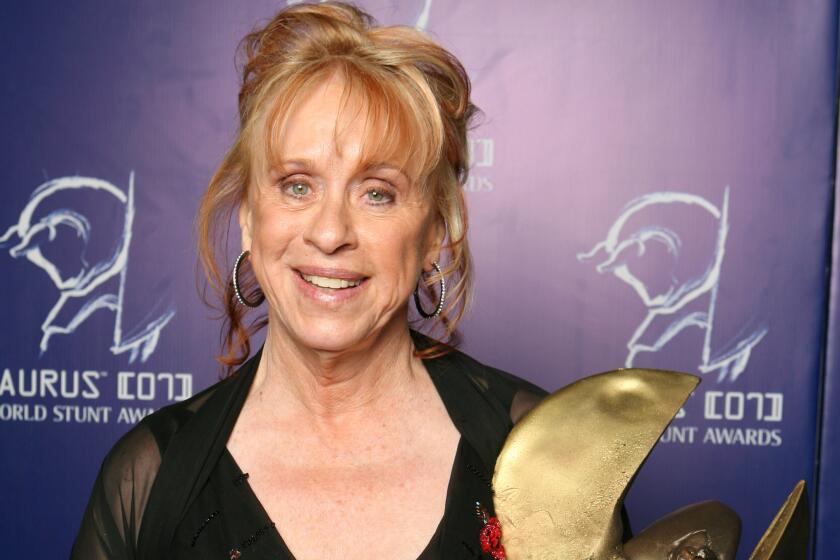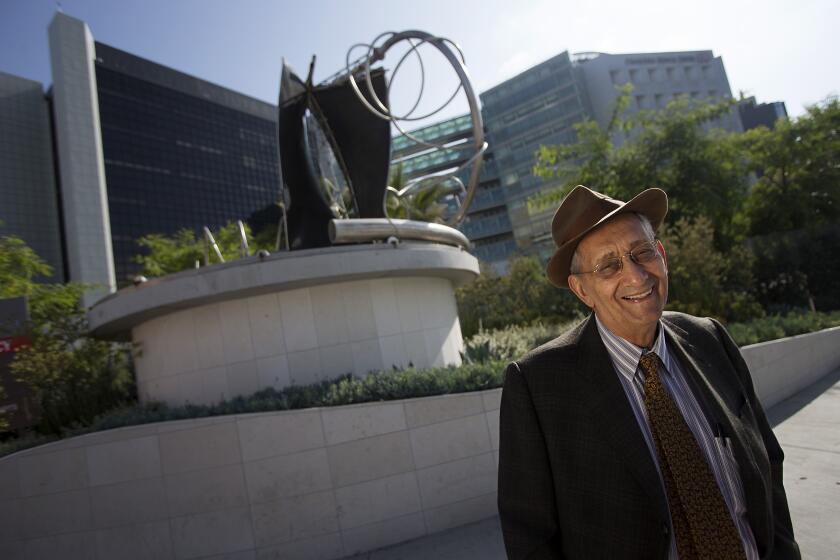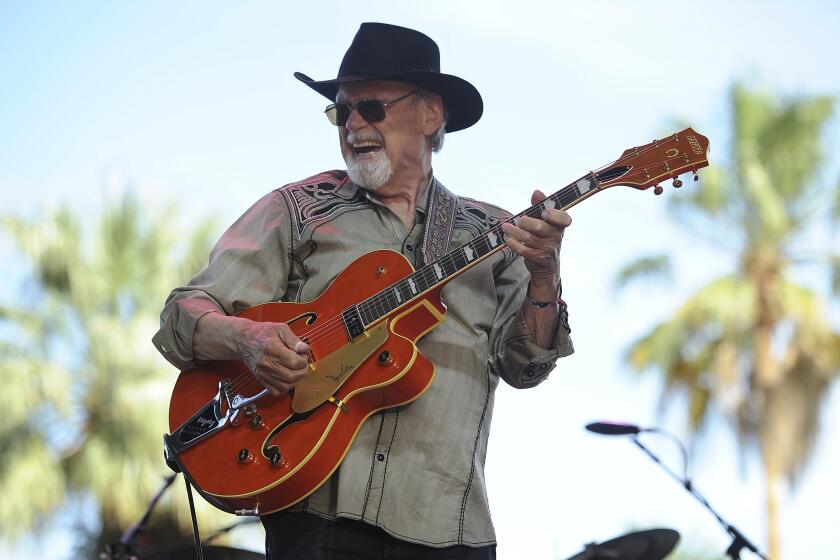Janis Martin dies at 75; mezzo-soprano who became a soprano
Janis Martin, a mezzo-soprano who reinvented herself as a soprano midway through a career that brought vivid praise for her command of Wagner and Strauss, died Dec. 14 in San Antonio. She was 75.
The cause was a diabetes-related heart attack, said her son, Robert.
A California native, Martin rose to prominence at the San Francisco Opera and earned a contract at the Metropolitan Opera in New York before performing at major opera houses across Europe, including in Paris, Milan, Vienna, Munich and Rome.
A regular at the Bayreuth Festival in Germany, she was known for her expertise in such Wagner roles as Senta in “The Flying Dutchman,” Kundry in “Parsifal” and Brunhilde in the Ring cycle, as well as in challenging Strauss parts, including the title role in “Elektra.”
“Janis Martin … does not happen to command the sort of soprano sound that answers every Straussian prayer,” critic Martin Bernheimer wrote in a 1984 Los Angeles Times review of the singer’s first “Elektra,” at the San Francisco Opera. “Nevertheless, she sings with unflagging intensity … and projects the heroine’s moods — from agony to desperation to sympathy to tenderness to triumph to dementia — with economy that reinforces expressive fervor.”
Born in Sacramento on Aug. 16, 1939, Martin grew up in a family where musicality was prized. Her father played the organ accompaniment for silent movies and later composed a musical about the Gold Rush for her mother, who did not become a professional singer despite her vocal gifts.
Martin had taken voice lessons for only a few months in 1958 when she was accepted into the Merola Opera Program, an intensive training program associated with the San Francisco Opera. “I’d never seen an opera before,” she recalled in Opera News in 1971.
She remained in the program for two years while attending UC Berkeley. She later dropped out of the university and made her operatic debut at the San Francisco Opera in 1960 as Teresa in Bellini’s “La Sonnambula.” At 21, she was the youngest member of the company.
Toward the end of 1960 she moved to New York and supported herself by singing in churches and restaurants. In 1962 she won first place in auditions for the Metropolitan Opera and made her debut there as Flora in Verdi’s “La Traviata.”
In New York she expanded her vocal range so that by 1962 “the coloring was dark but very clear,” she said in Opera News, “something that confused a lot of people as to whether I was a mezzo or a soprano.”
After three years with the Met, she left for Europe to pursue more large roles. She found the most opportunity in Nuremberg where, she noted in the German monthly Opernwelt in 2000, “I sang some roles as many as 55 times.”
She discovered that she was singing the high parts best, prompting critics to speculate that she was becoming a soprano, “which in fact, I was,” Martin told classical music writer Bruce Duffie on Chicago radio station WNIB in 1980. “It was a gradual, natural thing. I didn’t just decide; it happened to me.”
In 1971 she accepted an invitation from the Chicago Lyric Opera to play one of the most coveted soprano roles — the theatrical Tosca in the enduringly popular Puccini work. Two years later she made her Covent Garden debut, singing the role of Marie in Alban Berg’s “Wozzeck.”
She lived primarily in Germany for the next few decades but frequently performed in the United States. She was Brunhilde from Wagner’s seminal operatic cycle in her last performance at the Met in 1997, appearing with Placido Domingo as Siegmund and Deborah Voigt as Sieglinde. She retired from the stage in 2000 and later moved to San Antonio to be closer to her son.
Both her marriages — to Boris Rybka and German Boys Choir master Gerhard Hellwig — ended in divorce. Besides her son, she is survived by a brother, Richard, and two grandchildren.
Twitter: @ewooLATimes
More to Read
Start your day right
Sign up for Essential California for the L.A. Times biggest news, features and recommendations in your inbox six days a week.
You may occasionally receive promotional content from the Los Angeles Times.







